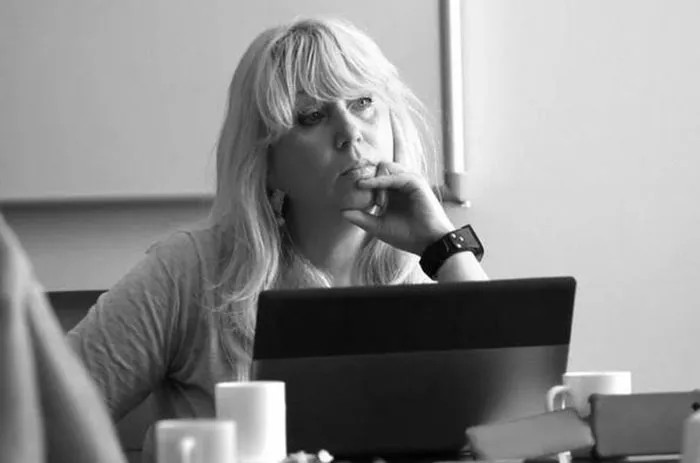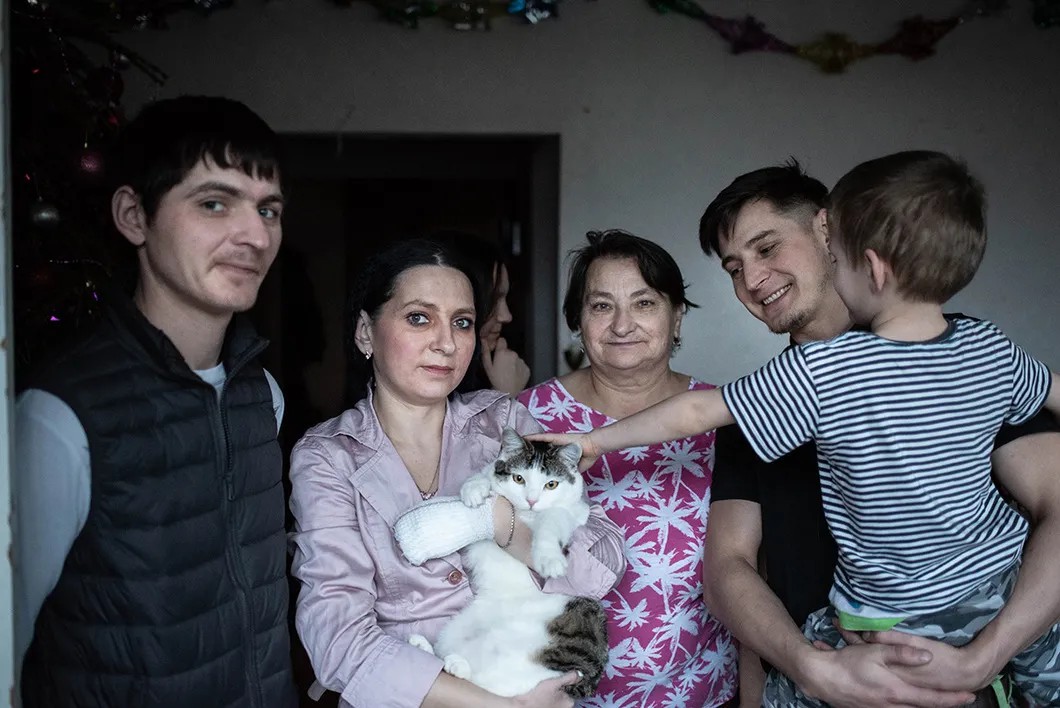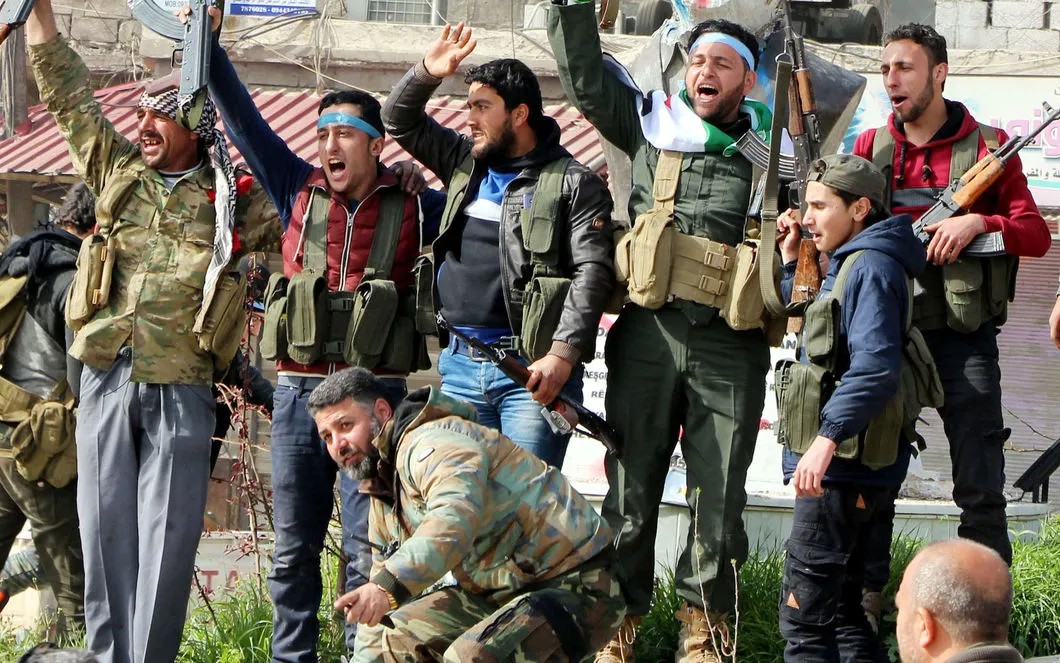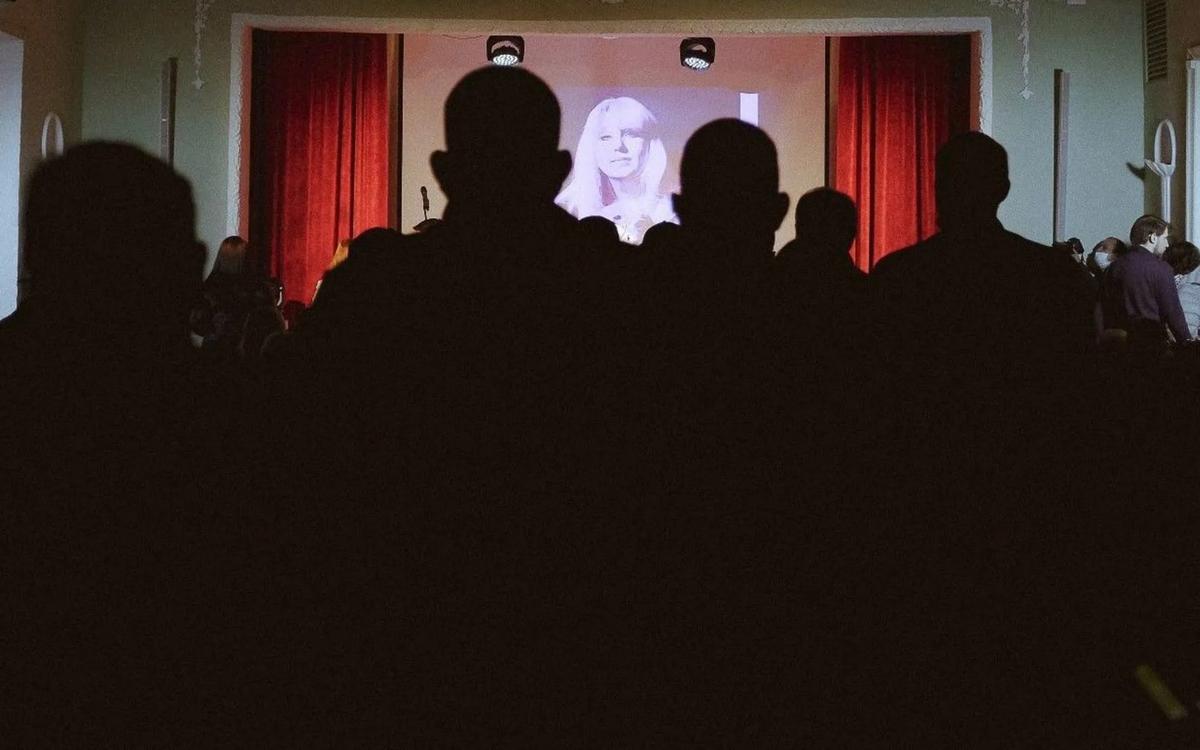This Week’s Highlights
A Russian journalist sets herself on fire to protest pressure from the government, and we explain how it is connected to the country’s worsening press freedoms; state-sanctioned homophobia in Russia takes another ugly turn, and same-sex couples face the prospect of losing their kids; plus, our data journalism unit investigates the second Covid-19 wave in Moscow and exposes a puzzling trend.
Want to get the full story? Click the links below for full-length articles in Russian.
Harassed by Officials, a Russian Journalist Commits Suicide
From the EU to leading human rights and press freedom watchdogs, there’s growing international outrage over the death of our colleague Irina Slavina. She committed suicide by setting herself on fire in front of a Ministry of Interior’s office in the Western Russian city of Nizhny Novgorod. Slavina was editor-in-chief at a local independent news outlet Koza Press. “I ask you to blame the Russian Federation for my death,” she wrote in a suicide note posted on her Facebook page.
THE DAY BEFORE SHE DIED, SECURITY FORCES SEARCHED SLAVINA’S APARTMENT in connection with a criminal case involving an “undesirable organization” — the legally-binding term used by Russian officials to suppress and harass civil society and journalism organizations. The search was linked to Open Russia, a leading pro-democracy organization created by the exiled Kremlin critic and former political prisoner Mikhail Khodorkovsky. Slavina covered the events related to the organization as a journalist.

12 OFFICIALS FORCED THEIR WAY INTO SLAVINA’S APARTMENT USING A CROWBAR. The journalistdocumented the break-in on Facebook. Police confiscated notebooks and laptops and other electronic devices. They took Slavina away for further interrogation. She wasn’t allowed to call her lawyer. It’s unclear what happened after that, but the very next day, she set herself on fire.
YEARS OF HARASSMENT.Slavina had been under constant pressure for her investigative reporting. Most independent Russian journalists agree that Koza Press has been the most outspoken and daring news outlet in the city, one of the fiercest reporting collectives in the country.
“Terror has been normalized in our society. Nobody was surprised that [opposition leader Alexei] Navalny could be poisoned just because he’s a guy who ‘obviously walked the edge.’ But now all of Russia is walking along the edge. At best, journalists in our country are exposed to exhausting court cases and fines,’” writes Novaya Gazeta’s political editor Kirill Martynov in this week’s op-ed in memory of Slavina.
SLAVINA’S CASE IS PART OF A WIDER CAMPAIGN OF HARASSMENT OF JOURNALISTS IN RUSSIA.Novaya Gazeta has analyzed several recent cases around the country, and we discovered identical examples in Kaliningrad, Krasnoyarsk, St. Petersburg, and Bashkortostan. The officials forced newspapers out of circulation, switched television stations off, and harassed journalists’ families. And this is just during 2020.
BACKSTORY.The persecution of journalists in Russia is widespread and systematic. Last week the court fined Novaya Gazeta $3,300 for publishing an expose on Chechnya’s repressive COVID-19 lockdown measures. Journalists are routinely brought to court to silence and intimidate them, and violence against journalists is common. Novaya Gazeta’s reporter Elena Milashina was attacked in Chechnya back in February. Several of our journalists were also murdered over the past 25 years, including Anna Politkovskaya, whose assassination still hasn’t been adequately investigated.
Read our full article about Irina Slavina’s death and the harassment of Russia’s journalists here, and our political editor’s analysis of the terror faced by journalists here.
This is How State-Sponsored Homophobia Ruins Russian Families
Maxim Lapunov was one of the few victims of recent queer pogroms in Russia who dared to speak out without hiding his identity. Novaya broke the story back in 2017 and offered Lapunov a platform to share his harrowing account. After Russia refused to protect him or his family, the Lapunovs fled abroad and now live as refugees. This week our special correspondents Elena Kostyuchenko and Victoria Odissonova, checked in with them for a mini-doc. It tells the story of the Lapunovs that got lost behind the internationally covered account of the violence perpetrated against Maxim.
RECLAIMING THE STORY.Our Kostyuchenko and Odissonova tell the story of a Russian family that was almost destroyed by state-sponsored homophobia but survived. The story of a queer family that escaped the worst, but now faces the harsh reality of life as a refugee. Maxim had to run abroad to save his life. So did his family: his mother Nadezhda, a sister Maria with her own two children, his brother Sergey, and his partner of 13 years, Bogdan. Maria died of cancer after Novaya recorded these interviews.

“I am infinitely grateful to him this opportunity, for the opportunity that he gave to Russia to investigate a crime against humanity, an opportunity that Russia didn’t take but could have,” Kostyuchenko writes.
THE FAMILY’S STORY ENCAPSULATES THE STRUGGLE OF SURVIVING IN MODERN RUSSIA.The Lapunov children grew up in an impoverished and deeply religious family in Siberia, with five brothers and a sister. Two of Maxim’s brothers died when they were young, and the family struggled with many obstacles that are familiar to most Russian families in the provinces: poverty, domestic and street violence, lack of employment prospects. So Maxim becoming the victim of queer pogroms wasn’t the only tragedy the family had to overcome. Yet, Lapunov calls it a turning point for all his family members.
“Why did this happen to me? I always tried to pay taxes to help people. I didn’t do anything bad to anyone. But I found myself in that situation, and everything went against me,” Maxim tells us. “Even if I'm gay, right? That doesn't say anything about me. I never wished bad things on anyone. I found myself hostage to a situation that broke my whole life.”
THROUGH DARK TIMES WITH FAMILY LOVE. When Maxim came out to his family, the fact that he was gay didn’t change anything. He just drank with one of his brothers and cried together through the night after it. When Masha became a domestic violence victim, she also leaned heavily on her brother Maxim and his partner Bogdan for support.
“I’ve already lost two sons; I don’t have many children to waste. This is your life; you are good to yourself; you are smart for yourself; you are everything for yourself. Thank goodness you're alive,” says Maxim’s mother Nadezhda, speaking to Maxim.
SURVIVING THE EXILE. After fleeing the country, the family was forced to live in two small apartments. Maxim’s mother, sister, and sister’s two small children occupied one. Both of the adult women were ill. Maxim lived in another one with his partner, Bodgan, and his brother. The men worked continuously to support the sick women and small children. The losses that Maxim and his family members had experienced brought them even closer together, and they had all learned to depend on each other for support.
“Everyone is fighting for ‘family values.’ They say that people like us destroy the ideal of the family. But the Lapunovs, the way they live, the way they accepted me, they are a mountain of strength. They love, respect, and protect each other. Their family showed me what family values are,” Maxim’s partner Bogdan tells us.
Поддержите
нашу работу!
Нажимая кнопку «Стать соучастником»,
я принимаю условия и подтверждаю свое гражданство РФ
Если у вас есть вопросы, пишите [email protected] или звоните:
+7 (929) 612-03-68
MORE ATTACKS ON RUSSIAN QUEER FAMILIES COMING.After publishing this story, we learned that Russian officials launched numerous investigations targeting LGBTQ+ citizens with kids. Specifically, the authorities investigate queer Russians who managed to bypass restrictive laws banning them from having a family and fathered a child using a surrogate. They now face criminal charges under the law tackling human trafficking. The state plans to take away their kids by force and send them to orphanages during the investigations.
“The Investigative Committee has created an explosive situation. In today’s Russia, any family that doesn’t fit in the mold of a “union between a man and a woman” and has a child could be attacked,” writes our columnist Natalia Chernova in this week’s op-ed.
BACKSTORY. LGTBQ rights have been under attack in Russia since the early 2010s, and the crackdown has become an essential feature of Putin’s rule over the country. In 2013, Russia passed an anti "gay propaganda" law that banned exposing minors to LGBT+ materials. Human rights groups say the law has exacerbated hostility towards LGBT+ people and has had a detrimental effect on queer children. Officials have been turning a blind eye to the brutal torture and killings of LGBT+ people in the country, including the anti-gay purges in Chechnya. This year the parliament tried (but failed) to roll out an attack on the legal identities of transgender Russians. But the rift between Kremlin's homophobia and societal attitudes is growing too - many have become exasperated with state gaslighting on the back of queer issues. Visible support for equal rights keeps growing in Russia.
Read our deep dive into the Lapunov family here, and our critic’s commentary on the investigations into Russia’s surrogate families here.
Questionable Data on Second Covid-19 Wave, Exposed
During the second half of September, the number of confirmed cases of Covid-19 in Russia’s capital spiked. The city’s Mayor Sergei Sobyanin urged older residents to stay at home, ordered companies to move back to remote work, and told Moscow’s schoolkids to stay home for a two-week holiday. This week our data journalism unit looked into this second wave statistics and found weird discrepancies.
SUSPICIOUS NUMBERS. We’ve already reported that the official number of confirmed cases over the summer seems odd. For a sustained period, the number of daily confirmed cases was around 700, a fact that experts pointed out was statistically impossible. Now, despite the reported spike in the number of cases in September, up to 2,000 new daily infections, that month’s numbers also look suspicious.

THE OFFICIAL DATA LOOKS COOKED. AGAIN. In just one example of many, for around ten days in September, the number of officially confirmed cases in Moscow was always a multiple of 5, ending in 0 or 5 without variation. We asked local healthcare authorities about this and didn’t receive a response. But the very next day, the numbers stopped appearing as a multiple of 5.
WHAT’S GOING ON.Independent experts tell us there was undoubtedly an increase in the number of coronavirus cases in September, but the scale is unclear. Some speculate that the official data reflects a ‘managed increase’ in numbers to convince Moscow residents that the return of heightened anti-Covid measures is needed, yet without revealing the accurate scale of the still mostly unmanageable outbreak.
THIS IS WHAT HAPPENS WHEN COVID MANAGEMENT BECOMES A HOSTAGE TO POPULIST POLITICIANS. “In Russia, the coronavirus and the Kremlin competed to see who was in charge, and by the early summer, the Kremlin decided to take control of the situation, writes our politics editor Kirill Martynov in this week’s op-ed. The Kremlin took action without considering the facts on the ground and launched a campaign based on the false premise that epidemics don’t need to be feared, Martynov writes.
“Unfortunately, now we will all pay the price. As epidemiologists predicted, the coronavirus is returning in the fall, and by November, thousands of people will be once again at risk of dying,” Martynov warns.
BACKSTORY. Russia had one of the largest Covid-19 outbreaks globally. But official statistics aren't always the most reliable indicators of the situation. Novaya Gazeta initially found relatively reliable data in only about ten regions, most of which had low infection rates. Our data analysis unit looked at other indicators to assess the severity of the epidemic, for example, whether the number of online searches for coronavirus-related symptoms has risen. Meanwhile, Russian companies are already producing a small handful of drugs that claim to treat the virus. But the drugs are expensive and ineffective.
Read our investigation into the second wave of Covid-19 cases in Moscow here; and our analysis explaining the human cost of an authoritarian approach to the pandemic here.
Other Top-Stories Russia Has Been Reading
- RUSSIA PREPARES FOR OIL PRICE COLLAPSE:One of our most-read stories this week is about the future of Russian oil. Last week, the Kremlin pushed through the parliament a bill forcing companies that export oil to pay duties even if the pl price is below $15 per barrel (a previous loophole allowed exporters to eschew this fee). Economists say that Russian officials are preparing for oil to stay below $15 per barrel for the next several years, at least. None of this bodes well for ordinary Russians. The collapse of the commodity economy will result in a sharp reduction in wages, and social spending will likely be cut, too.

- VOLUNTEERS, MERCENARIES FLOOD INTO NAGORNO KARABAKH.The frozen conflict in Nagorno Karabakh, a region claimed by both Azerbaijan and Armenia, has suddenly thawed as renewed fighting broke out in late September. Over 100 soldiers and civilians have already been killed in the war. But in Armenia’s capital Yerevan, just 300 kilometers away, the situation remains calm, and life continues as usual. Our special correspondent Ilya Azar went to Yerevan to interview people aboutwhy they are going to join the fighting. Meanwhile, Syrian mercenaries have also been spotted in the conflict zone. Our source in Syria’s Idlib province, on the border with Turkey, said that a Syrian of Turkmen origin named Seif Abu Bakr is directly involved in registering the mercenaries. They are paid $1,800 a month and guaranteed Turkish citizenship for themselves and their families, according to our special correspondent Vadih Al Hayek.
- WE TRACK ANOTHER MASSIVE ENVIRONMENTAL DISASTER IN RUSSIAN ARCTIC. Water pollution in the Kamchatka peninsula has poisoned surfers, burning their eyes, and caused mass death of sea animals. Photos and videos of the disaster began to appear on social media during the first days of October. The environmental organization Greenpeace said that the pollution is threatening a Unesco heritage site. Novaya Gazeta's sources believe that the pollution was caused by a rocket fuel leak from a military testing site in Radygino, where similar poisoning symptoms have emerged. We are despatching reporters to the site. Watch this space in our future editions.
Thanks for reading!To keep up with Novaya Gazeta’s reporting throughout the week, you can follow us on Facebook, Twitter, Instagram, and Telegram. Our video content is available on Youtube and don’t forget to visit our website for the latest stories in Russian.
— The Novaya Gazeta Team
Поддержите
нашу работу!
Нажимая кнопку «Стать соучастником»,
я принимаю условия и подтверждаю свое гражданство РФ
Если у вас есть вопросы, пишите [email protected] или звоните:
+7 (929) 612-03-68
